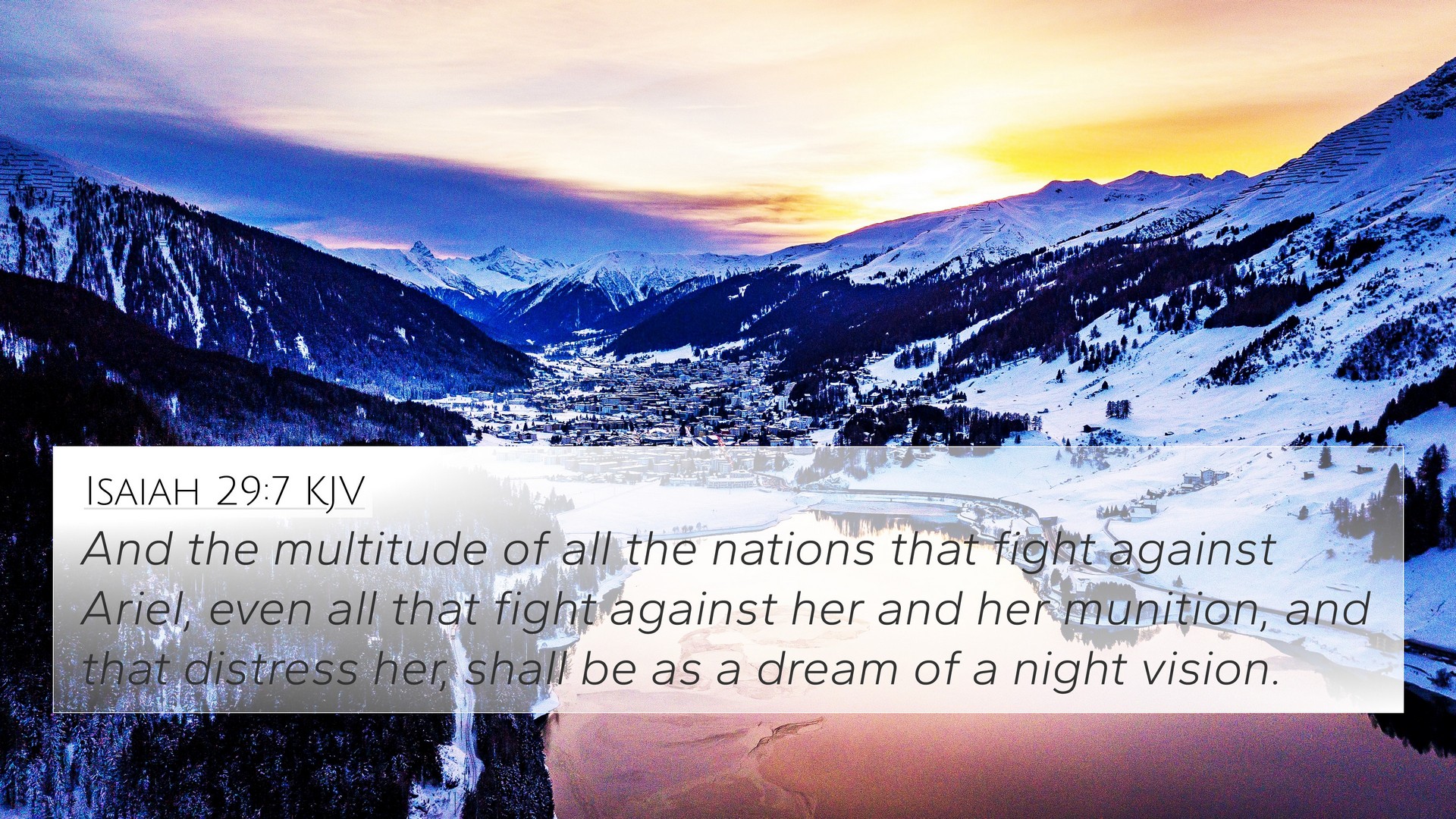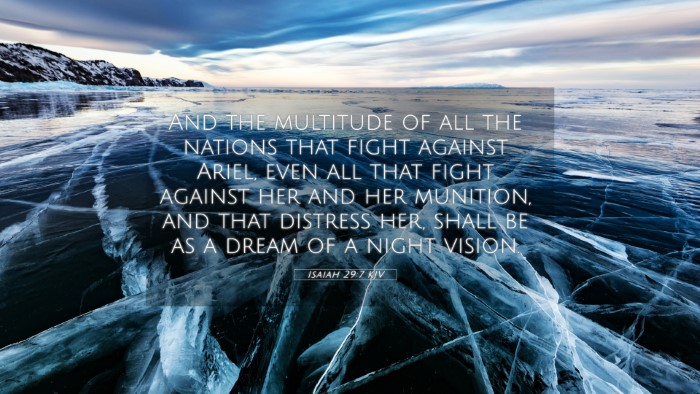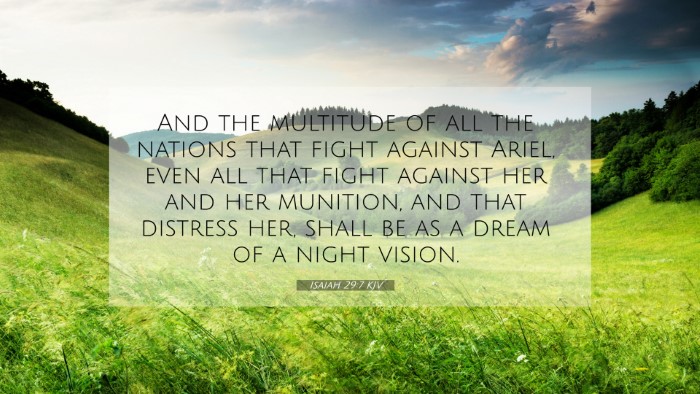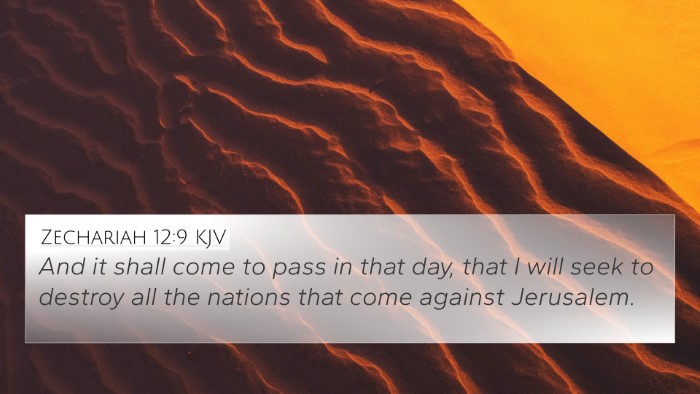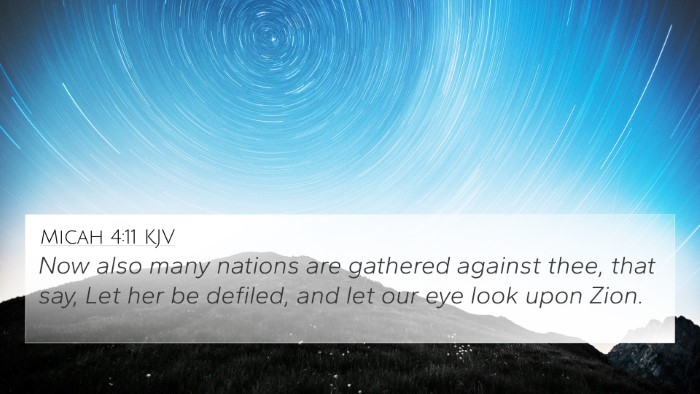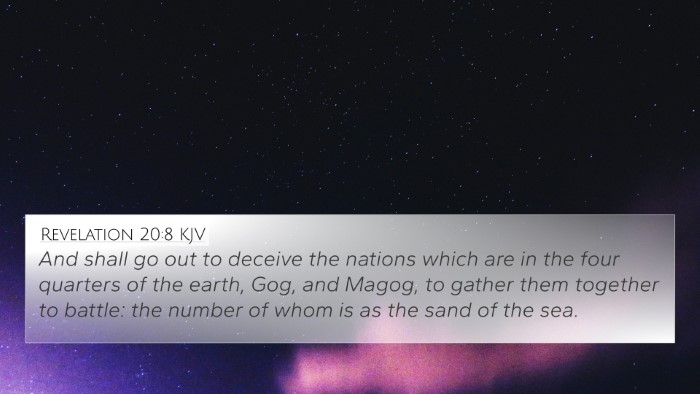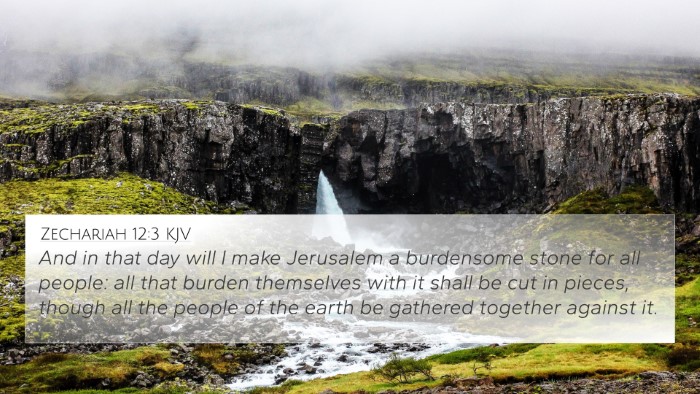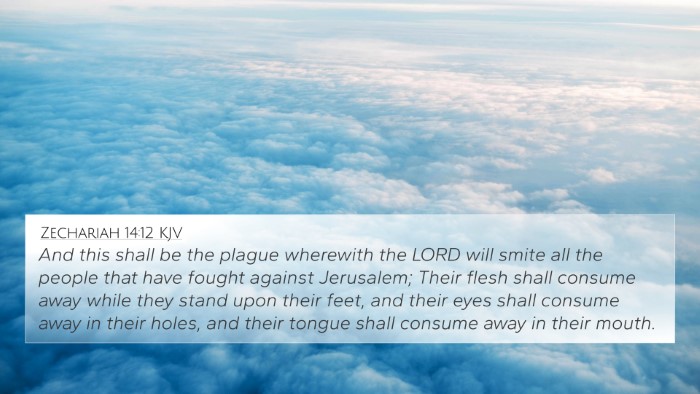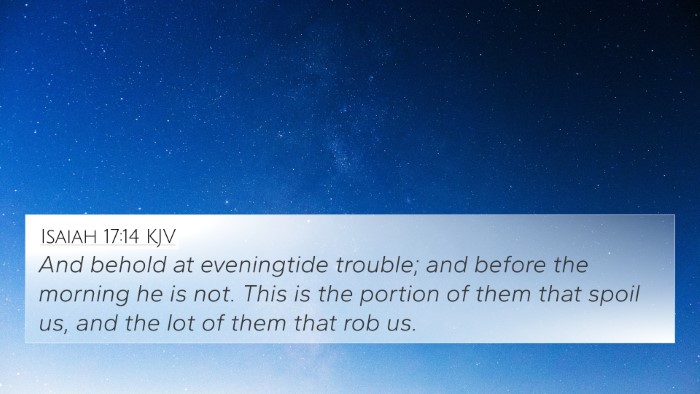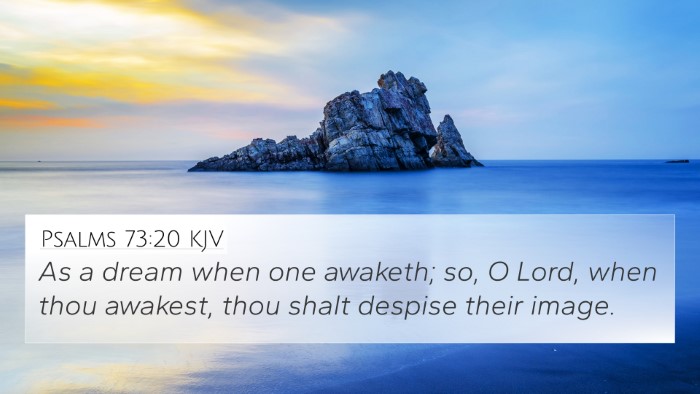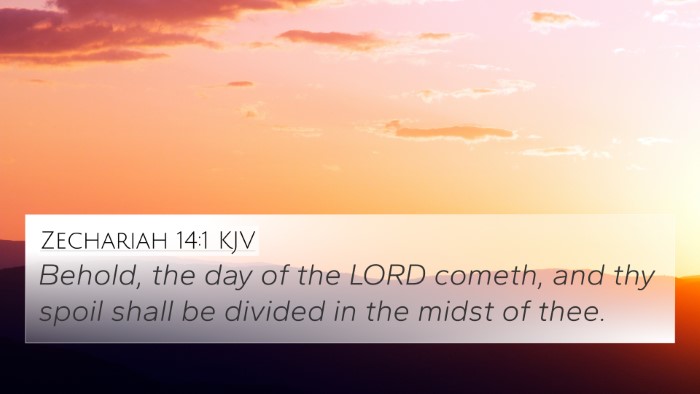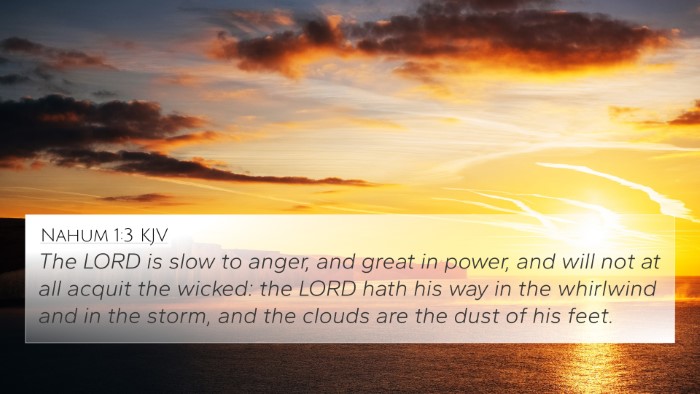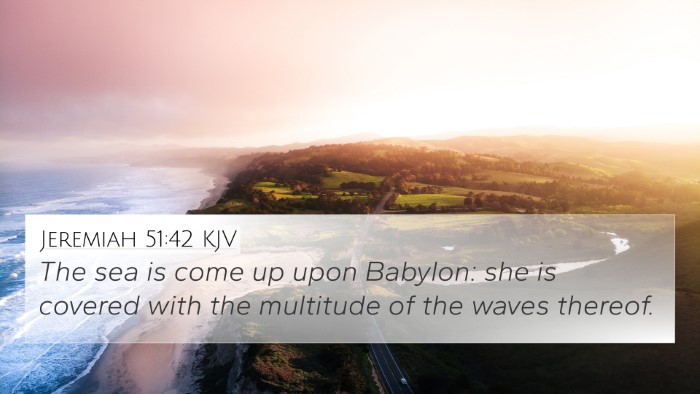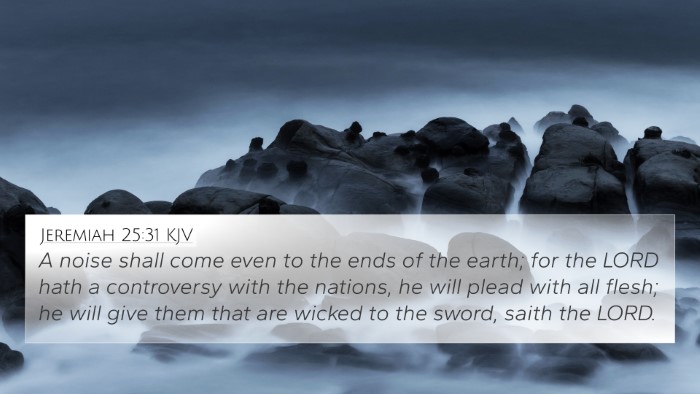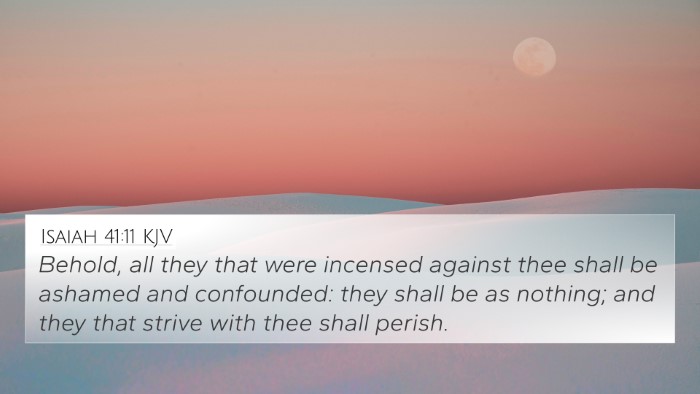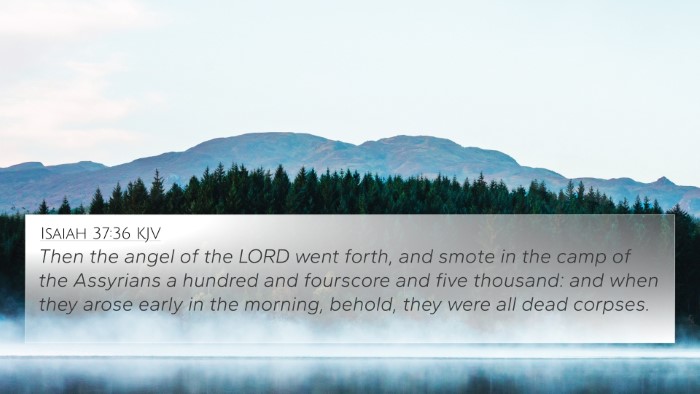Understanding Isaiah 29:7
Isaiah 29:7 reads: "And the multitude of all the nations that fight against Ariel, even all that fight against her and her munition, and that distress her, shall be as a dream of a night vision."
This verse encapsulates a prophetic vision concerning the fate of nations who rise against Jerusalem (referred to as Ariel). The verse is emblematic of the broader themes of divine protection and the ultimate futility of opposing God’s chosen people. Through an analysis of this verse, we can glean insights about the overarching narrative present throughout Scripture concerning God’s sovereignty.
Insights from Public Domain Commentaries
Matthew Henry's Commentary:
Matthew Henry elaborates that this passage illustrates the transient and dream-like nature of the plans and ambitions of those who oppose God’s will. Just as dreams can vanish at the dawn of day, so too will the efforts of these nations against Jerusalem. This paints a picture of God’s ultimate authority over human plans and the fleeting nature of earthly power when set against divine purposes.
Albert Barnes' Notes on the Bible:
Albert Barnes draws attention to how the verse highlights not just the inevitable downfall of the enemy, but also the confusion and disarray that will befall them. Barnes emphasizes the metaphorical use of "dream" to signify the illusion of security that these nations have in their own strength. Their efforts will ultimately yield nothing substantial, foreshadowing a catastrophic failure in their ambitions against God's city.
Adam Clarke's Commentary:
Adam Clarke adds depth by acknowledging the historical context in which this prophecy was delivered. He relates it to the Assyrian threat to Jerusalem, underscoring how God’s deliverance over the seemingly invincible Assyrian army serves as a historical testament to the truth of the prophecy. Clarke posits that the imagery of a dream speaks to the stark difference between human perception and divine reality, illustrating that those who trust in human might will ultimately find their endeavors fruitless.
Bible Cross-References
This verse interconnects with a multitude of other scriptural passages that echo the themes presented within it:
- Psalm 2:1-4: "Why do the nations conspire and the peoples plot in vain?" This passage reiterates the futility of opposing God's anointed.
- Isaiah 54:17: "No weapon that is formed against you shall prosper." This assures believers of God’s defense against adversaries.
- Micah 4:11-12: Predicts the gathering of nations against Zion, but states that they do not understand the divine plan.
- Jeremiah 30:11: "For I am with you, saith the Lord, to save you." It exhibits the divine promise of protection for His people.
- Revelation 19:19: Describes the final confrontation between God and the nations in rebellion against Him, showing the ultimate victory of divine authority.
- Romans 8:31: "If God is for us, who can be against us?" This New Testament affirmation aligns with the Old Testament theme of divine support.
- 2 Chronicles 20:15: "The battle is not yours, but God's." This emphasizes reliance on God’s power over human strength.
Thematic Bible Verse Connections
When analyzing Isaiah 29:7, we see it as part of a broader theme of divine sovereignty and protection that resonates throughout the Bible:
- Divine Protection: The consistent deliverance of God's people from their enemies (Exodus 14:14).
- The Fallibility of Human Strength: The notion that God’s will ultimately prevails over human ambitions (Proverbs 21:30).
- Judgment of Nations: The prophetic literature often emphasizes God’s judgment on nations that oppose Him (Ezekiel 25).
Conclusion
Isaiah 29:7 serves not only as a warning to opposing nations but also as an encouragement to believers of God’s unfaltering protection and the ineffectiveness of worldly defenses against divine intention. The imagery of a fleeting dream effectively communicates the nature of opposing God's plans versus the steadfastness of His promises. Through cross-referencing with other Scriptures, we can see a cohesive narrative that amplifies the understanding of God’s sovereignty that echoes through both the Old and New Testaments.
Engaging with such themes enriches one's study and interpretation of the Scriptures, encouraging deeper reflection on how various Bible verses relate to one another and build upon the foundational truths found in God's Word.
